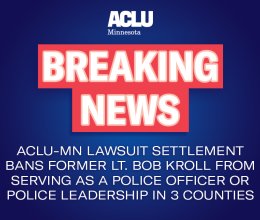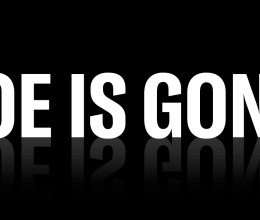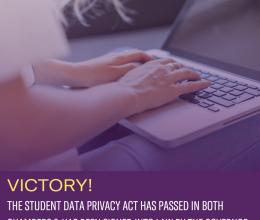We won in State v. Hensel. But what about all the other city councils across the state of Minnesota?
Local activist Robin Hensel was attending her local city council meeting in Little Falls, Minnesota, like usual, when she was arrested for sitting in the “wrong” section. According to Robin, people were sitting in the area during previous meetings without a problem; she, however, was asked to move her chair further from the dais. She refused. And then she was arrested.
The Little Falls City Council claimed that Robin violated part of Minnesota’s disorderly conduct statute, which prohibits the disruption of any assembly or meeting. Robin claimed she was only trying to exercise her freedom of speech. And while her case is certainly not the first to challenge this statute, it does highlight the extent to which the vagueness of the statute can be exploited to silence the public. Without distinguishing what is a “disruption” and what is merely dissent, Minnesota law is written in such a way that any behavior or speech that a city council does not like can be seen as “disruptive,” and therefore criminal. This has a damaging effect on people exercising their freedom of speech, particularly when exercising that around their elected officials.
Robin sued, challenging her arrest. The Minnesota Court of Appeals dismissed Robin’s case. However, last week the Minnesota Supreme Court ruled that part of Minnesota disorderly conduct statute is too broad and therefore violates the First Amendment. Robin Hensel’s charges were dismissed.
For now the statute is invalid. How this will actually play out in practice is uncertain. While this is a win for Minnesotans across the state, city councils unfortunately don’t need Minnesota law to silence their constituents. They have other means by which they can attempt to control and censor public dissent.
For example, the city council in North Mankato instituted revised policies this summer that they claimed were designed to “streamline” meetings. Many of their constituents, however, disagreed. The changes to the policy include burdensome restrictions on speaking times (only 3 minutes per person) and restrictions to how and when members of the public can bring up topics during meetings. Previously, the city council allowed for two sections of public comment—now they only allow for one. And residents of North Mankato need to file additional paperwork and requests before addressing the council.
Tom Hagen, an engaged member of North Mankato, has been a vocal opponent of the changes from the beginning. He regularly attends city council meetings, and has expressed frustrations at how the city council has become increasingly removed from those they are meant to serve. In a letter Tom wrote, he stated, “In discussion we can hear each other, perhaps discover perspectives new to us, and hear firsthand what our neighbors are thinking. Whatever limits the possibilities for this type of open discussion, limits our choices, understanding, and options.”
One of the more controversial provisions in the revised policies is a restriction that states individuals may not revisit any topic that they have previously addressed to the council. Another vocal opponent of the new rules, Barbara Church, also shared with us her concerns. “Over the years I have been going to council meetings, the council has continually chipped away at public comments portions of the meetings, and have actually made it more difficult for folks to participate.”
Barbara stated she believes that the new rules, as they stand, allow the council to filter community feedback. “It says to me that they will only listen to what they want to hear and will ignore any opposition to their ideas.”
City council meetings play a critical role in our democracy. They are intended to provide a direct and clear avenue for residents to engage with—and yes, disagree with—those who make decisions in their communities. When our ability to directly engage with our local elected officials slowly erodes, it undermines the integrity of our entire government and democracy.
What is most disappointing about North Mankato is that the city council moved forward with the changes to the policy despite clear dissent from community members, at least a handful of whom have spoken directly with city council members (as well as the ACLU of Minnesota) about their concerns. And with limited alternatives for public engagement with elected officials, what alternatives exist for these residents? Private meetings with city council members? Phone calls and e-mails? That is hardly a substitute for a robust and engaged community forum—one that is open and available. One that we would hope our elected officials would want to foster and encourage rather than stifle and intimidate.
Little Falls and North Mankato are not unique—issues with public censorship in city council meetings exist across the state of Minnesota. And while sometimes there may be legal challenges to these instances of censorship, as in the case of Robin Hensel, other times there may not be. So the question is not if city councils are able to infringe on the public’s access to free speech, but rather how and when will we begin organize against it?
Has your city council added restrictive policies to public comments? Have you had your freedom of speech at city council meetings undermined? Share with us your experiences by e-mailing our communications associate at akhan@aclu-mn.org.


